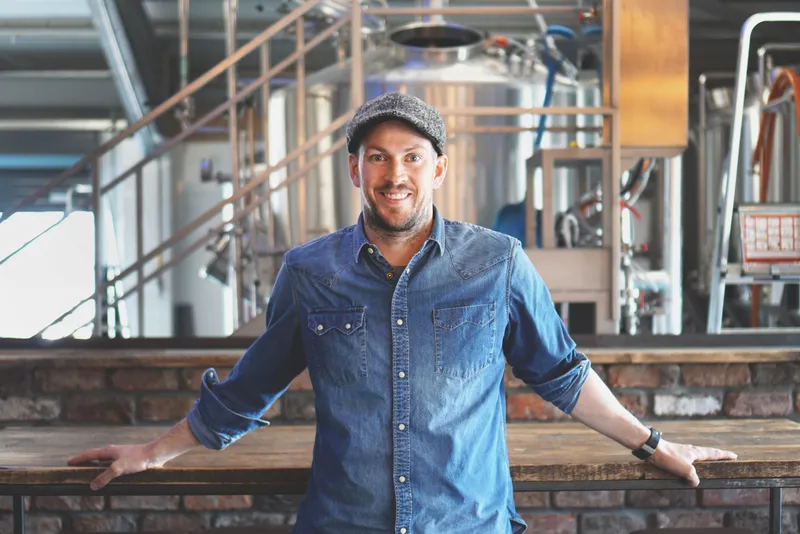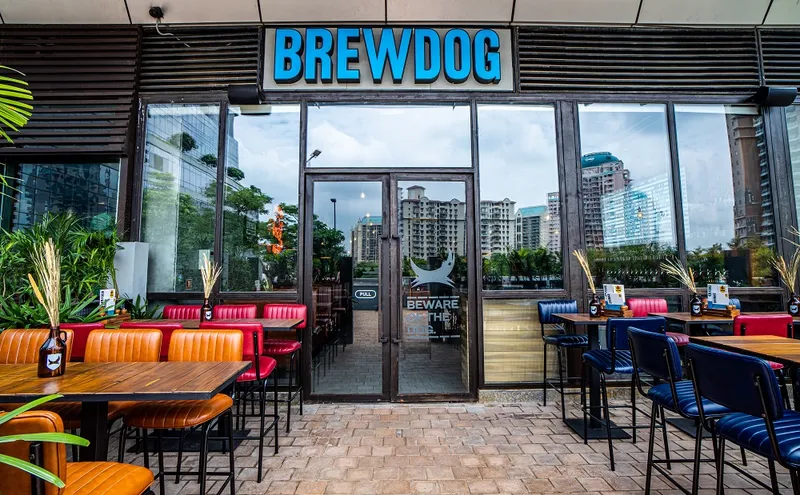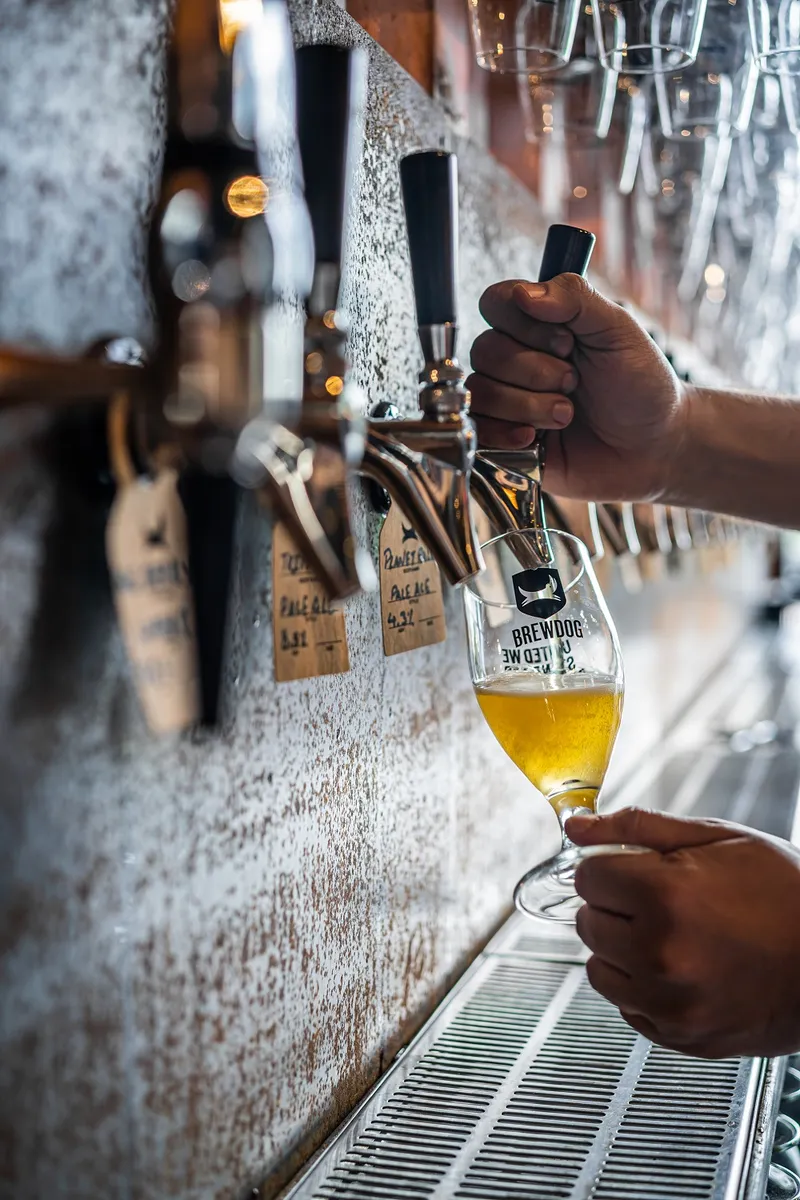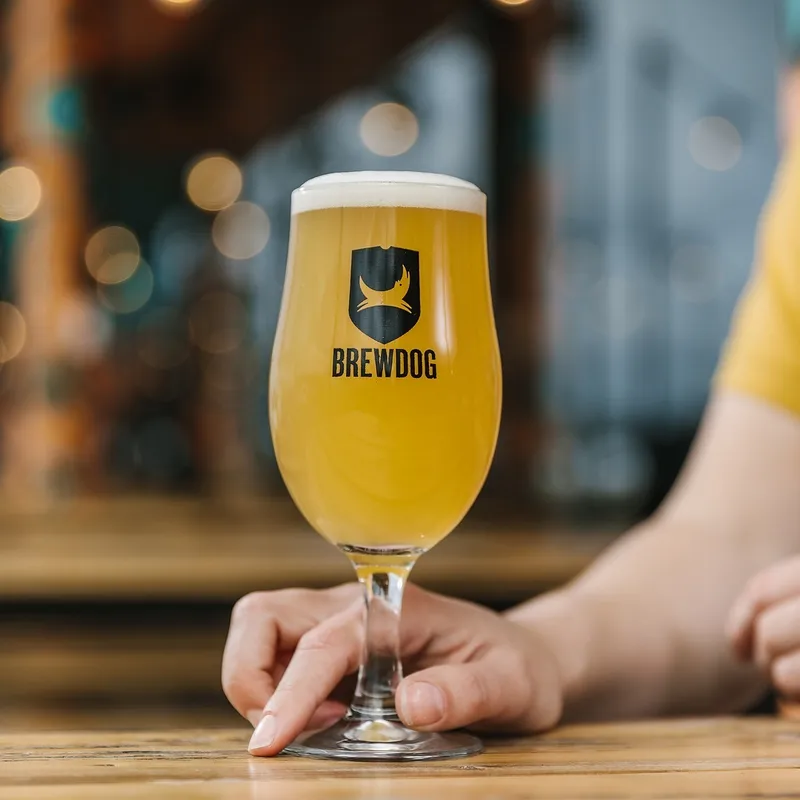BrewDog CEO James Watt on why India is on top of the charts for the global beer brand
YS Life had a freewheeling chat with James Watt, CEO and Co-founder, BrewDog, to know more about what sets his brand apart, the growing craft beer culture in India, and his expansion plans for the country.
Come summer and India’s millennial and GenZ folks lean on beer to quench their thirst. Unlike earlier, it’s not just the bottled varieties that are finding favour. The growth of microbreweries across the country points towards an increased interest in freshly brewed beer—craft or otherwise. This has, in turn, attracted several international beer brands, which want to make it big in the Indian market.
One of the most prominent global names to mark its entry into India is . The carbon-negative Scottish craft brew brand currently has three outlets in the country, two in Mumbai and one in Delhi-NCR, and expansion plans are underway in full swing.
Its India CEO, Karan Jain, recently revealed the brand’s plan to open another four to five outlets across Delhi, Ludhiana, Mohali and Jaipur, by the third quarter of 2023. In fact, BrewDog anticipates having at least 10 new outlets every year in the country, starting 2026.
The conception of the brand has an interesting backstory. James Watt, CEO and Co-founder of BrewDog, was a deep-sea captain, with an honour’s degree in law and economics. In his own words, “I traded in being a salty sea dog to become a BrewDog in 2007.” He pursued his passion for craft beer by setting up the company with his best friend, Martin Dickie.

James Watt, CEO and Co-founder of BrewDog
YS Life caught up with Watt to know more about BrewDog’s USP, pairing beer with Indian cuisine, and the top beer trends to watch out for in 2023.
Edited excerpts from the interview:
YS Life [YSL]: What is BrewDog’s USP?
James Watt [JW]: We’ve been growing globally for the past 15 years. Over this period of time, we have realised staying true to our roots with an awareness for the local audience is BrewDog’s USP. We’ll be taking the punk ethos that made BrewDog grow so rapidly in the UK and Europe and apply it locally in India.
Moreover, to stay relevant in the Indian market, we’ve been working closely with our extremely knowledgeable local partners. They’re the experts on what works on the ground here and are skilled at translating BrewDog’s story and communicating it in the right manner to the people in India.
YSL: Do you believe that the alco bev scene in India has evolved? What is the one thing you love about it?
JW: It’s the same everywhere, not just in India. What I love about beer and the alco bev scene is the people. It’s the people who make beers and spirits, enjoy them, and it ultimately also brings people together and fosters a spirit of community. Beer has been a part of our civilisation for 5,000 years now; it’s a great way to connect with friends and family. For me, good beers are all about the people—be it the people that make it or the people that it brings together.

The BrewDog Gurgaon outlet
YSL: What do you think about India’s brewery culture that has become so solid over the years?
JW: There’s such an eclectic, emerging craft beer scene in India that I am thrilled we can be a part of this! The beers being made locally are mind-blowingly good, and I’m especially excited about the BrewDog beers that we’re making in India, exclusively for our local community.
Punk IPA and Hazy Jane are really flying in the UK and USA, but we’ll also be doing trials of other firm favourites to see what people enjoy. We also give a lot of creative freedom to our brewers, enabling them to try new ideas and recipes that they believe will be popular, too. I recently visited India and loved every single one I tried—I can’t wait to return and explore more of the country’s vibrant craft beer scene.
YSL: Do you think beer pairs well with Indian cuisine?
JW: Indian cuisine is so diverse, and what I love about good beer is its ability to pair with good food. If you look at mainstream beer, it’s just a lager or wheat beer. So, you don’t have that much leeway to do interesting things. But if you look at draft beer, you can get a decadent, opulent imperial stout that tastes like chocolate and coffee, which complements well with desserts.
You can get a sour beer that’ll work really well with some dishes; it’s got a lot of acidity. You can get an India pale ale (IPA) with a huge amount of bitterness, which is amazing to wash down fat-rich dishes. You can get something like a Dunkel or a multi-lager, which has a bit more sweetness and body. That’s going to work really well with spicy food.

YSL: Moving on to your expansion plans in India, what are your thoughts about it?
JW: India is almost our number one focus internationally for expansion. We’ve got three outposts at the moment and are about to open two more soon. We’re also starting to make beer in India, which is really important to us from a sustainability and a bureau freshness perspective.
We love making beer as close as possible to where the customer is. At the moment, we’re making some small batches and kegs for the bars, but we plan on having larger batches too. Furthermore, packaged cans and bottles for distribution are also on the cards.

India is a small, new market for us at the moment, but we’ve seen the kind of potential it has. We’re really excited to have a fantastic partner to help us expand here and are optimistic about the prospects for our business in the Indian market.
YSL: What are some of the beer trends we must look out for in 2023?
JW: The bigger trend to watch out for, at the moment, is a beer style called New England IPA. It is a hazy, cloudy IPA with a huge amount of happiness and low bitterness. It’s a beer style that has been in America for the last few years and has become popular there as well as in the UK. If I was to pick one beer style for India, it would be the New England IPA style.
Edited by Swetha Kannan







